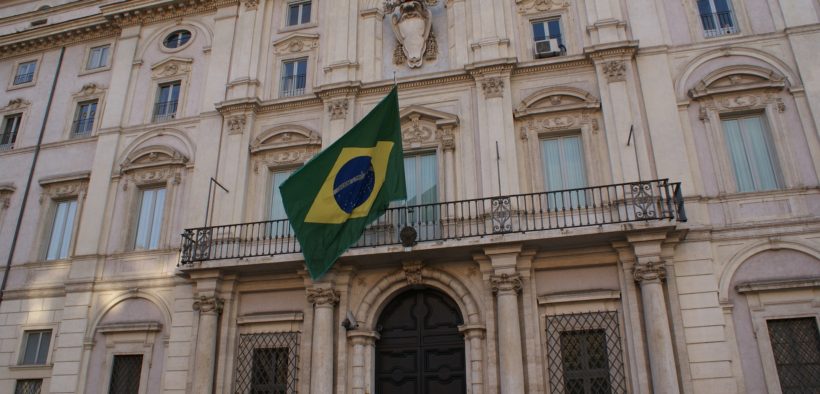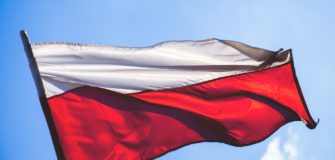Brazil’s Response to COVID-19
Share

Image by Mariangela RIbeiro from Pixabay
Before the “new normal,” Brazil had been recovering from its 2015–16 economic recession, rebuilding fiscal buffers such as the 2016 spending cap rule (teto dos gastos) and the 2019 pension reform. On February 26, 2020, the first Brazilian contracted COVID-19 which spread in a widely uneven capacity across the country. The pandemic peaked in mid-August as daily case numbers hovered at 45,000. Since then, the rate of cases has steadily declined. In Brazil’s containment efforts, prompted by the World Health Organization’s Public Health Emergency declaration, the country has faced democratic and economic challenges, mainly revolving around Law 13,979, enforced through Act No. 356.
Act 356 mandates four actions. First, the need for isolation — at home or in public/private hospitals — must be determined by a health surveillance agent and enforced through a Free and Explained Consent Form. Second, only a formal administrative act can determine the need for a quarantine, and test results are made publicly available. Third, violations of the isolation and quarantine measures must be reported to the authorities and the Public Prosecutor’s Office. Finally, requests for assets and services from an individual or company must be made by the competent authority of the corresponding administrative sphere and the individual or company proving the goods or services must be fairly compensated. In addition, as Brazil responded to the international health crisis, it sought to fulfill numerous World Bank recommendations that focused on improving its economic health. These recommendations included containing the damage, protecting the poor and most vulnerable, supporting firms and jobs, strengthening the fiscal situation of subnational governments, avoiding financial sector instability by supporting credit provision, strengthening public sector management, enhancing transparency, and collecting real-time data.
Law 13,979 gave an enormous amount of power to the state, enabling it to expand economic policy on both national and local levels. This extension of power was mainly seen through the national government’s stimulus package and policy addendums. Brazil’s Minister of Economy, Paulo Guedes, devoted USD 150 billion (R$ 750 billion) to an economic stimulus package put together by the Ministry of Economy, Public Banks, and the Central Bank for resources that will help lift the country out of this economic and health crisis. This financial support program adds up to 8.6 percent of GDP and includes reallocations within the 2020 budget to support health expenditures and advances on expected income such as some pension benefits. The federal government also pledged to compensate states and municipalities for their tax-revenue losses caused by the economic downturn, offering federal guarantees and credit lines through federal public banks to fund expenditures related to the health crisis.
Along with the stimulus package, Brazil used three policy stances to reapportion its budget and lift their economy out of this crisis. First, Congress declared a state of “public calamity” on March 20, lifting the government’s obligation to comply with the primary balance target for 2020. Second, Bolsanaro used the escape clause of the constitutional expenditure ceiling to accommodate exceptional spending needs. Third, emergency measures were included in a separate ‘war’ budget, not bound by the provisions of Brazil’s Fiscal Responsibility Law and the constitutional golden rule. All of these measures enabled Brazil to increase its spending toward areas that were suffering the most, such as Bolsa Familia (US$ 620 million), the relaxation of labor laws to maintain jobs, support for small and medium-sized companies (US$ 8 billion), postponement of readjustment of pharmaceuticals products, aid for informal and self-employed workers (US$ 8 billion).
Brazil has progressed greatly in containing the virus, but has also seen its sharpest economic recession to date. While non-essential businesses and services have reopened with restrictions, domestic supply and demand suffer under both physical and economic safety restrictions. Ultimately, the state faces a significant challenge: it will need to increase spending to support its healthcare system but is currently experiencing declining economic activity. As many states faced a similar situation pre-COVID, and were already illiquid or insolvent, this funding gap may cost Brazil about 1.5% of GDP.
Economic institutions are also controlling the recession created by the virus. Alongside industrial and household setbacks, Brazil’s exchange rate depreciated by about 22% since mid-February and by 29% since the end of 2019. Consequently, the central bank has intervened various times in the foreign exchange market since mid-February (both with spot and derivative contracts sales), by a total of 41 USD billion (about 12 percent of gross reserves). Recently, these measures have shown to be helping businesses and larger scale industries recover (in particular, the oil and airline industries).
While there were many successful economic impacts of this legislation, it has allowed the federal government to intervene in its citizens’ daily lives and act as the sole determinant of how Brazil responds to COVID-19. In Act 356, a required health surveillance agent has been labeled by many as excessive government control, but the “Free and Explained Consent” form may be worse since it forces patients to self-isolate during the stipulated number of days and to agree to consequences if they violate this measure. Because test results are recorded publicly, it may be very easy to determine who violates such measures. However, this obtained and released information further intrudes into citizens’ private lives and may parallel the United States’ PATRIOT Act’s ability to uncover and store personal data that would otherwise be inaccessible. The state’s power is specifically displayed in the act’s last clause regarding the “competent authority of the corresponding administrative sphere” since the federal government typically deals with larger institutions and foreign affairs. While these changes were designed to help Brazil recover from COVID-19, the legislation violates Brazilian states and municipalities’ power to respond to the public health crisis and leaves the federal government unchecked — a critical component of liberal democracies.
To that end, the Democratic Labor Party (PDT) raised a lawsuit on behalf of states and municipalities, contending that some changes introduced in Law No. 13,979 were incompatible with the Federal Constitution. In particular, the Court assessed a Direct Action of Unconstitutionality, arguing that the redistribution of police powers introduced by Provisional Measure No. 926 of Law 13,979 interferes with the cooperation regime between federal and more local entities. They contend that entrusting the federal government with the prerogatives of determining isolation, quarantine, mobility restrictions, public services, essential activities, and circulation of goods violates the Federal Constitution.
On April 15, 2020, this case was closed in a videoconference session held by Brazil’s Federal Supreme Court. The court decided on the Direct Action of Unconstitutionality (ADI) 6341, unanimously declaring, “Urgency and the need for a general scope of discipline are present on the national level, and [this need] must be concluded by the President of the Republic – Jair Bolsonaro – when editing the Provisional Measure. What is in [this measure] does not exclude the competing competence of States and Municipalities.” This decision confirmed that “the measures adopted by the federal government in Provisional Measure No. 926 of March 20, 2020 do not rule out the concurrent competence or ability of the states, Federal District, and municipalities to adopt normative and administrative measures to confront COVID-19.” This effectively upheld Justice Marco Aurélio’s ruling from March 24, 2020, acknowledging the concurrent competence of the states and municipalities to respond to COVID-19. In other words, the federal, state, and municipal governments can all determine the rules for isolation, quarantine, and restriction of transport and transit on highways due to the coronavirus epidemic. As the federal Supreme Court fulfilled its constitutional duties and worked as a focal point in terms of judicial and Brazilian democratic security, it rebalanced power and restored Brazil’s system of checks and balances. Much of Brazil, particularly the poor, are intimidated by the state’s suffering economy. In large part, the country’s recession is exemplified by a greater demand for services in the healthcare, transportation, and energy sectors as domestic supply suffers under physical and economic safety restrictions. As a result, Brazil has experienced a depreciating exchange rate by about 22% since mid-February and by 29% since the end of 2019, leaving institutions and families to turn to the state for help. With Law 13,979, the federal government almost set a dangerous precedent of imbalanced powers across the federal, state, and local governments. However, this was quickly reversed by the Supreme Federal Court which determined that all levels of government have a role to play in resolving this crisis. As the Court upheld Brazil’s system of checks and balances, it also determined that Law 13,979 would turn the exception of confidentiality of public information into the rule, and damage the public administration principles of disclosure and transparency. Ultimately, this ruling compels the Brazilian government to trade its citizens’ privacy for a safer, healthier society.


Want to get involved?
Connect with us! Connect with us!